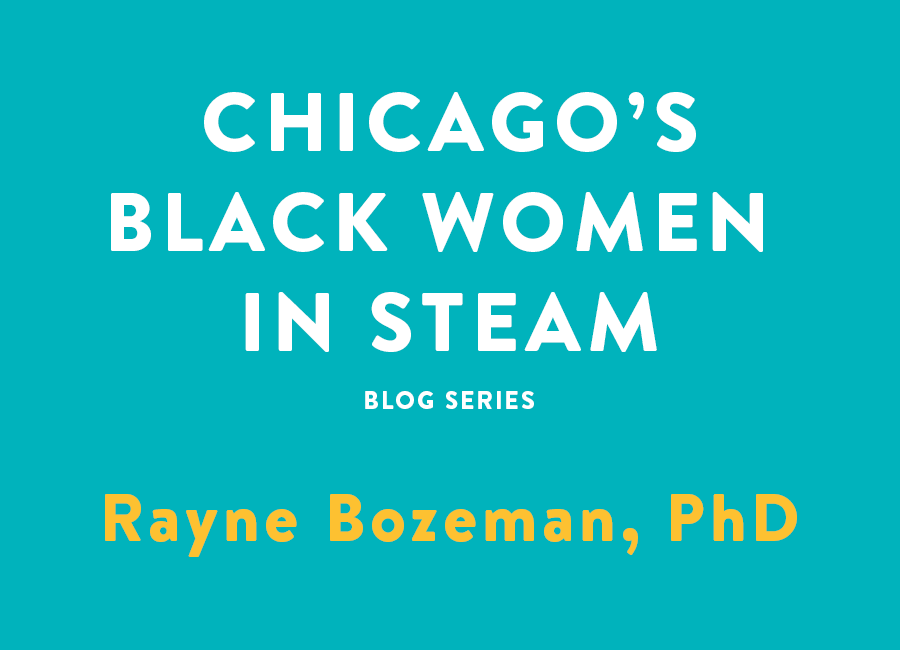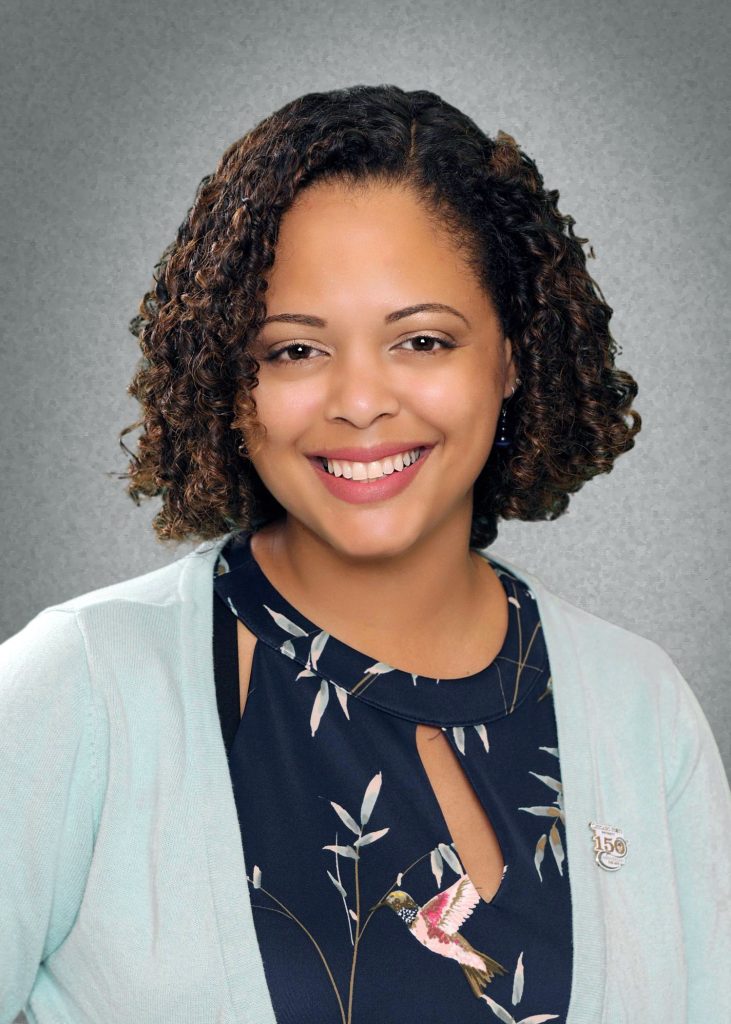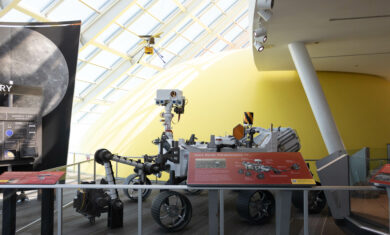Chicago’s Black Women in STEAM Series: Meet Rayne

“Chicago’s Black Women in STEAM” is a new series on The Adler ’Scope that highlights the awesome women of Chicago who are doing amazing things in science, technology, engineering, art, and math fields here in our own community. Meet women of varying ages, backgrounds, and interests and learn their unique stories.
Rayne Bozeman, PhD
Doctor of Philosophy, Applied Social Psychology

What first sparked your interest in social psychology?
I was a sophomore or junior in college when I took an introductory course in social psychology. One of the class projects involved conducting a quasi-experiment in which I had a chance to observe social behavior. The hands-on nature of the assignment really sparked my initial interest. I think I also really liked the professor—as superficial as that sounds. She seemed cool and she seemed to like her job. Later, I took a capstone course on the social psychology of stereotyping and prejudice. I was hooked after that. The professor in that class, Dr. Marty Gooden, was the only faculty person of color in my department. He became my mentor and advised me on my senior honor’s project, which I had a chance to present at the Midwestern Psychological Association conference. Getting to do my own research really gave me the confidence that I could stick with this as a long-term career prospect.
During your time at Loyola University, you taught an undergraduate course called Understanding Prejudice. What inspired you to create this course and what learning objectives did you have for students?
My advisor, Robyn Mallett actually created the course, but I helped develop the activities and resources that were used in the first iteration of the course. The inspiration for the course came in part from the fact that no such course existed at the undergraduate level. It seemed appropriate that an institution like Loyola University Chicago—that prides itself on advancing social justice—would equip students with an understanding of the research and theories behind stereotypes, prejudice, and intergroup relations. There were three broad learning objectives. The first involved getting students to understand the basic research methods of psychology in order to describe how researchers have studied the topic of prejudice. The second was identifying the cognitive (i.e., stereotyping), affective (i.e., prejudice) and behavioral (i.e., discrimination) components of intergroup relations. The third objective was to actively engage students by having them complete a social action project aimed at prejudice-reduction. The latter was the most exciting part of the course because students could see the real-world, practical application of social psychological theories.
You also work as a Diversity Consultant. Can you tell us more about this role and why these types of services are important?
I was trained as an applied social psychologist, which means that I’ve been conditioned to think about how the theories I’ve learned can be used to address societal problems. Organizational diversity is one such problem. As a diversity consultant, I engage with organizations that seek to improve their diversity. In most cases, this entails conducting an initial needs assessment and providing diversity awareness and sensitivity training around issues of social identity (like race, gender, sexuality, religion, etc.). This form of service is important because organizations are becoming increasingly diverse in their numeric representation. Despite this increase in structural diversity, many organizations lack awareness of the importance of having a social climate that signals that all individuals will be valued and accepted for the diversity they bring.
What has been the most rewarding aspect of your current role as a professor of psychology at Chicago State University?
It is most rewarding to see students conceive of themselves as scientists. Although most of the students in my classes have declared their major to be psychology, they are susceptible to the faulty notion that psychology is not a science. I love it when students begin to envision a career as a researcher or an applied social scientist. This is in part because most students think of psychology as being limited to clinical work or mental health counseling.
In the United States (and beyond) few women are earning degrees in STEM, and the percentage is even smaller for women of color. How have you made sense of this inequality? In what ways do you think that intergroup prejudice can be reduced in the STEM community?
Interestingly, this exact topic is one of the ways I try to grab students’ attention during the first day in my social psychology course at Chicago State University. I remind them of the abysmal statistics related to the leaky STEM pipeline (i.e., women and racial minorities drop out of STEM beginning in high school and the trend worsens by the time folks reach graduate school). I believe that some part of the problem is students’ own efficacy. They may not think they are capable of persisting in STEM partly because they don’t feel like they belong. When few people in a given environment look like you, you start to question whether you’re a good fit. Then I show my students research by Gregory Walton and colleagues (2015) which suggests that relatively simple interventions can make a huge difference. In particular, when women and minorities are made aware of the fact that it is pretty typical for college to feel stressful—regardless of your race or gender—then these individuals tend to show a dramatic improvement in their GPA. The take-home message is that reducing people’s uncertainty about belonging in an environment can reduce the type of underperformance that leads to dropout. However, focusing solely on the individuals who do not persist in STEM creates the faulty impression that the locus of control lies solely in the individual. For the STEM community to reduce intergroup prejudice, we will also have to direct efforts at systemic change. For example, some research suggests that teachers’ expectations matter. When instructors expect students to do well, they typically do, regardless of the students’ baseline performance. Institutions can begin by engaging in self-reflection. Individuals can spend time assessing the stereotypes that color our beliefs about what a typical scientist, mathematician or engineer looks like. We could invest resources into recruiting women and minorities as early as middle-school. If you believe that your field is exciting and that there’s a space for more women of color, then sell that message. Make it sound appealing.
What advice would you give to young girls of color who are interested in pursuing careers in STEAM?
Start talking yourself into it. Look yourself in the mirror and affirm the belief that you have what it takes to be good at STEAM and that you can persist in the face of challenges. Then find a topic that sparks your interest and engage that topic. Watch videos about it, find out about museum exhibits or podcasts on the topic. Finally, seek advice from someone in the field. Maybe you know an engineer or a mathematician. Ask that person tons of questions about what got them interested in their field.







